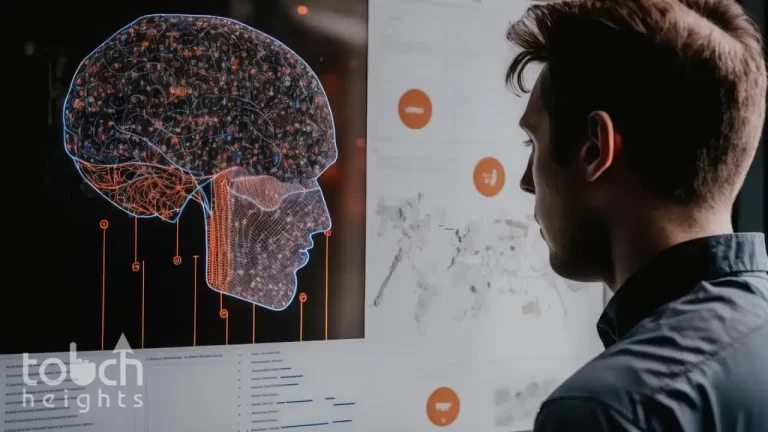Introduction
Welcome, fellow students! Get ready for a fascinating journey into the fusion of education and neuroscience, your brain’s very own user manual for optimal learning. In this guide, we’ll explore the basics of neuroscience – the study of the brain – and unveil secrets to supercharge your study sessions. Think of it as a shortcut to effective and awesome learning. Ready to uncover the mysteries and elevate your study game? Let’s dive in!
The Role of Neurotransmitters in Learning
Dopamine vs. Serotonin:
Dopamine: Your brain’s reward system, it celebrates accomplishments and makes learning feel awesome.
Serotonin: The mood maestro, it keeps you calm and happy during positive and engaging learning experiences, enhancing information retention.
Positive Vibes = Better Memory:
Positive emotions work like magic for memory. When you’re happy or excited, neurotransmitters kick in, making it easier for your brain to remember and store information.
Quick Tips for a Neuro-Friendly Study Vibe:
- Fun Overload: Turn study sessions into games or use colorful visuals.
- Switch It Up: Keep things interesting by changing subjects and study methods.
- Move and Shake: Take short breaks to stretch or dance – it wakes up your brain.
- Connect the Dots: Relate new info to what you already know for a brainpower boost.
Memory Hacks Backed by Brain Science
- Chunk it Up:
Your brain loves bite-sized pieces! Break down big chunks of information into smaller, manageable bits. It’s like creating a memory buffet for your brain to feast on. - Visual Aids Rule:
Picture this – literally! Connect words with images or draw diagrams to give your brain a visual feast. It’s like creating a memory movie in your mind. - Teach and Learn:
Ever tried explaining what you’re learning to someone else? Teaching reinforces your understanding and solidifies memories. Be your own teacher! - Spaced Repetition:
Don’t cram – space it out! Review information over time to strengthen your memory. It’s like planting memory seeds that grow with each revisit.
Effective Study Techniques for Different Learning Styles
Strategies for Every Brain Flavor:
- Visual Learners:
- Create colorful mind maps or diagrams.
- Use flashcards with images.
- Watch educational videos related to your topic.
- Auditory Learners:
- Record yourself explaining concepts and play it back.
- Listen to educational podcasts or audiobooks.
- Engage in group discussions to vocalize your thoughts.
- Kinesthetic Learners:
- Use hands-on activities or experiments.
- Pace or move while studying.
- Take breaks for physical activity between study sessions.
Unlock Your Learning Style:
- Know Yourself: Reflect on how you naturally prefer to learn. Do visuals light up your brain, or do you thrive on discussions and interactions?
- Experiment: Try out different study methods that align with each learning style. Notice which ones feel most natural and effective for you.
- Adapt and Conquer: Once you’ve identified your style, adapt your study routine accordingly. Mix and match strategies to keep things engaging.
Cognitive Load and Optimal Learning
Cracking the Cognitive Load Code:
Cognitive load is like the backpack your brain wears while learning. It carries everything – from new info to problem-solving. The trick is not to overload it, so your brain can dance through the learning process like a rockstar.
Strategies for Study Success:
- Chunk It Up:
- Break down big tasks into smaller, digestible chunks.
- Tackle one chunk at a time to avoid overwhelming your brain.
- Limit Distractions:
- Find a quiet space to study.
- Turn off notifications on your devices to keep your brain focused.
- Prioritize Key Information:
- Identify the most important info for your goals.
- Focus on the essentials to prevent cognitive overload.
- Use Mnemonics and Visual Aids:
- Turn boring info into catchy mnemonics.
- Create visual aids like charts or diagrams to make information memorable.
Practical Tips Ahead:
- Take Breaks:
- Plan short breaks during study sessions.
- Give your brain a chance to rest and recharge.
- Practice Retrieval:
- Test yourself on what you’ve learned.
- Actively recalling information strengthens your memory.
- Mix It Up:
- Vary your study routine to keep things fresh.
- Rotate subjects and methods to prevent cognitive fatigue.
- Teach What You’ve Learned:
- Explain concepts to a friend or even an imaginary audience.
- Teaching reinforces your understanding and reduces cognitive load.
The Impact of Sleep and Stress on Brain Function
The Sleep Boost: Unveiling Nighttime Brain Magic
Sleep isn’t just for dreams; it’s your brain’s VIP lounge. During those Z’s, your brain transforms, consolidating the day’s lessons like a memory spa session, vital for overall brain function.
Stress Unmasked: A Sneaky Foe for Your Brain
Meet the not-so-friendly character – stress. It crashes your brain’s party, disrupting focus, memory, and learning. Time to bid stress farewell and reclaim control over your brain’s groove!
Neuroscience-Informed Time Management Strategies
- Prioritize Like a Pro:
- Your brain loves order! Prioritize tasks based on importance and deadlines.
- Tackle high-priority items first to keep your brain in peak performance mode.
- Break It Down, Build It Up:
- Chunk big tasks into smaller, manageable pieces.
- Your brain thrives on little victories, making the larger goal less overwhelming.
- Ride the Focus Wave:
- Leverage your brain’s natural focus peaks. Identify your prime focus times and schedule demanding tasks accordingly.
- Take short breaks to refresh your mind and maintain optimal focus.
Building Habits for Long-Term Learning Success
Guidance for Building Study Habits that Stick:
- Start Small, Think Big:
- Your brain loves bite-sized changes. Begin with small study habits and gradually increase complexity.
- Small wins build momentum, making it easier for your brain to embrace new routines.
- Consistency is King:
- Repetition is your brain’s best friend. Consistency reinforces neural pathways, turning habits into second nature.
- Set a consistent study schedule to sync with your brain’s love for routine.
- Cue the Triggers:
- Pair your study habits with existing cues in your routine.
- Your brain will associate these cues with studying, making it a natural part of your day.
Conclusion
In conclusion, this journey through neuroscience and study strategies unveils a blueprint for academic triumph. Decoding your brain’s superpowers and harmonizing strategies into a symphony of success, let this guide be your compass for effective learning.







